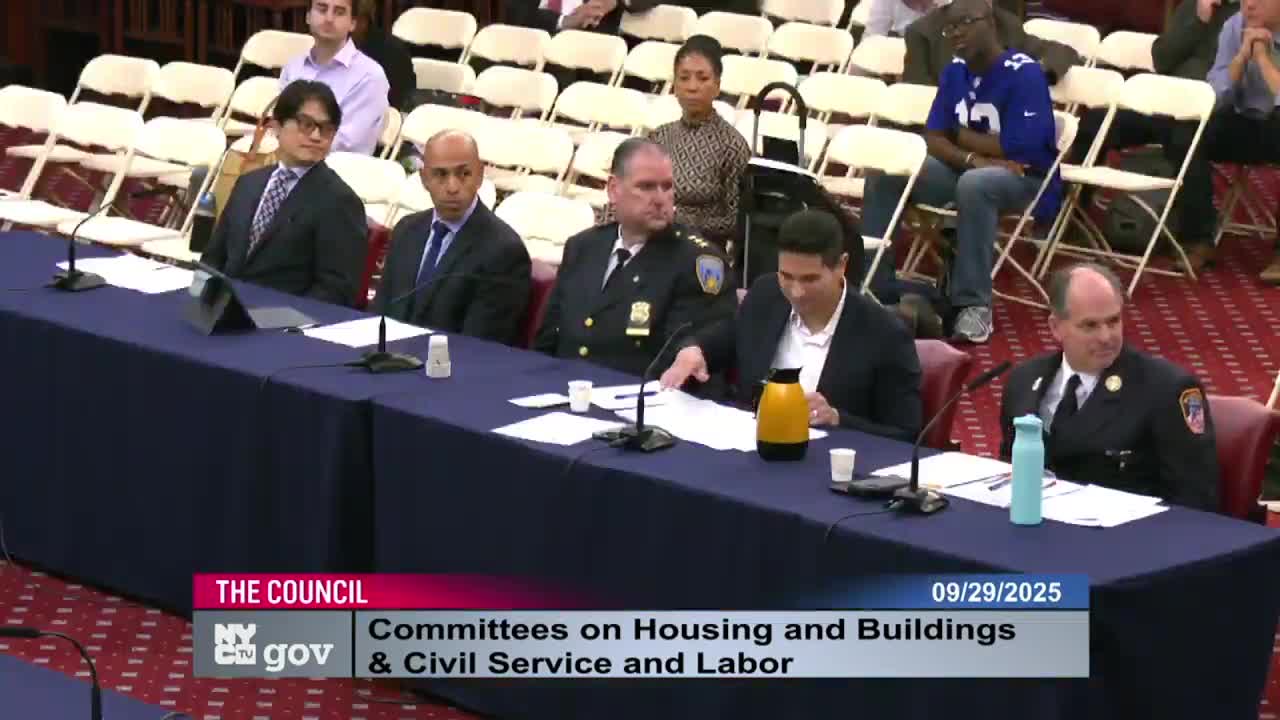Article not found
This article is no longer available. But don't worry—we've gathered other articles that discuss the same topic.
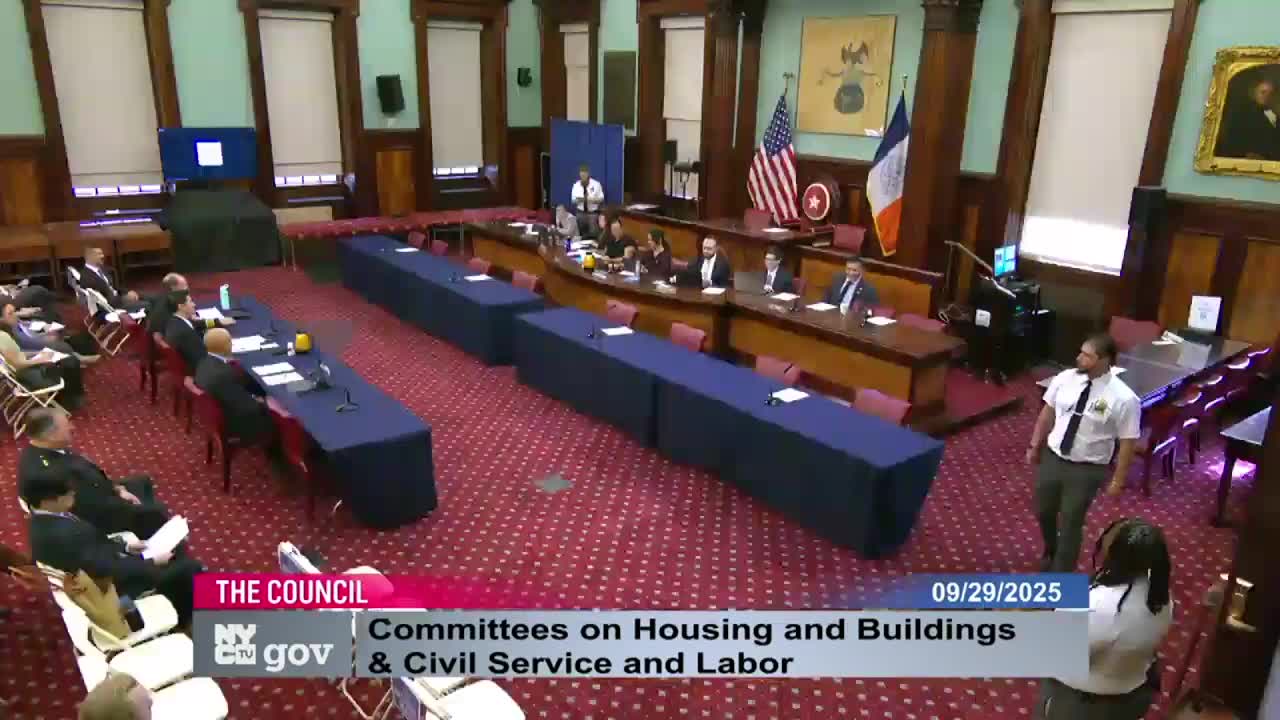
DOB, FDNY warn against expanding single‑stair exceptions in proposed building‑code change
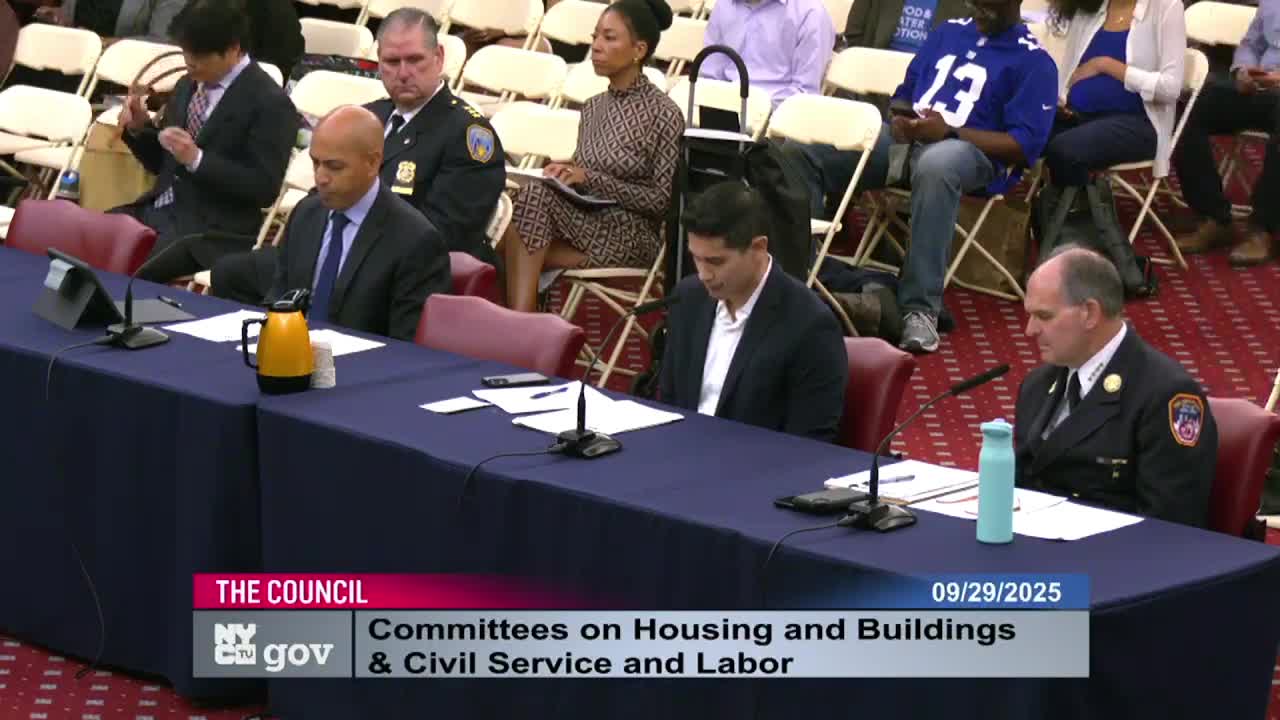
City agencies back mental health and substance-misuse topic for site safety cards, seek code fixes
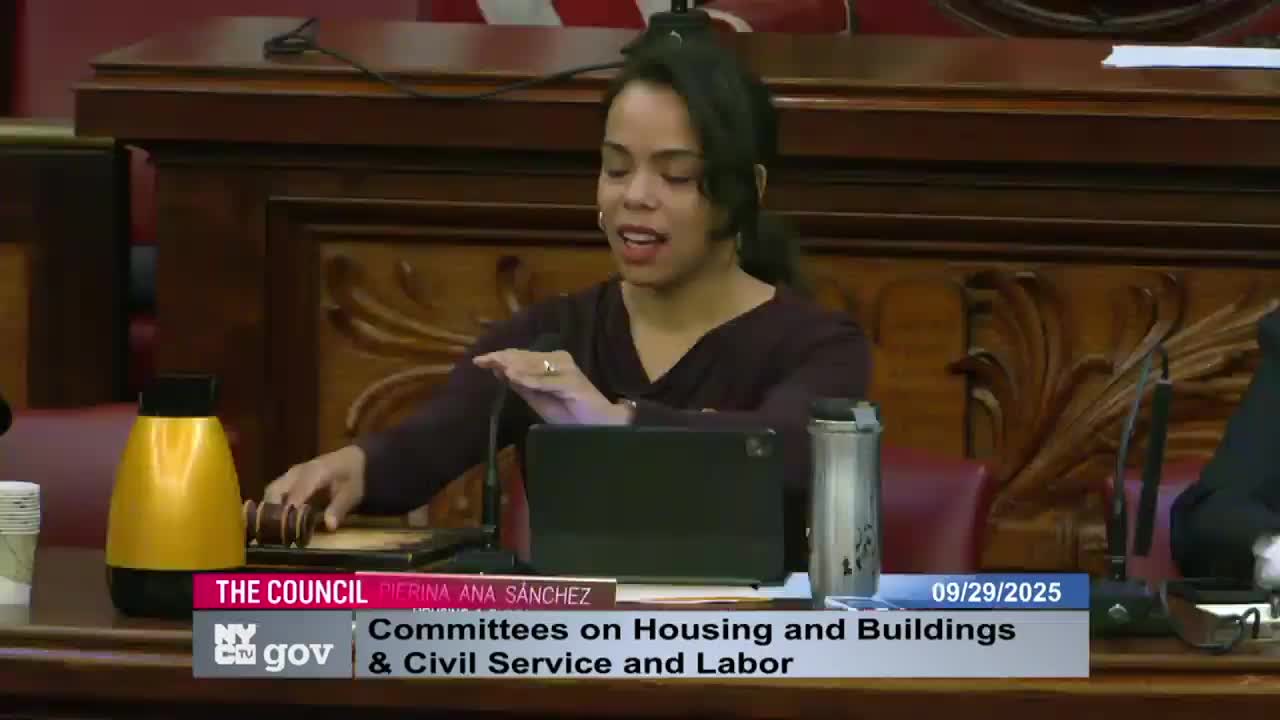
Council hearing spotlights worker safety gaps as bill would require DOHMH guidance on extreme weather
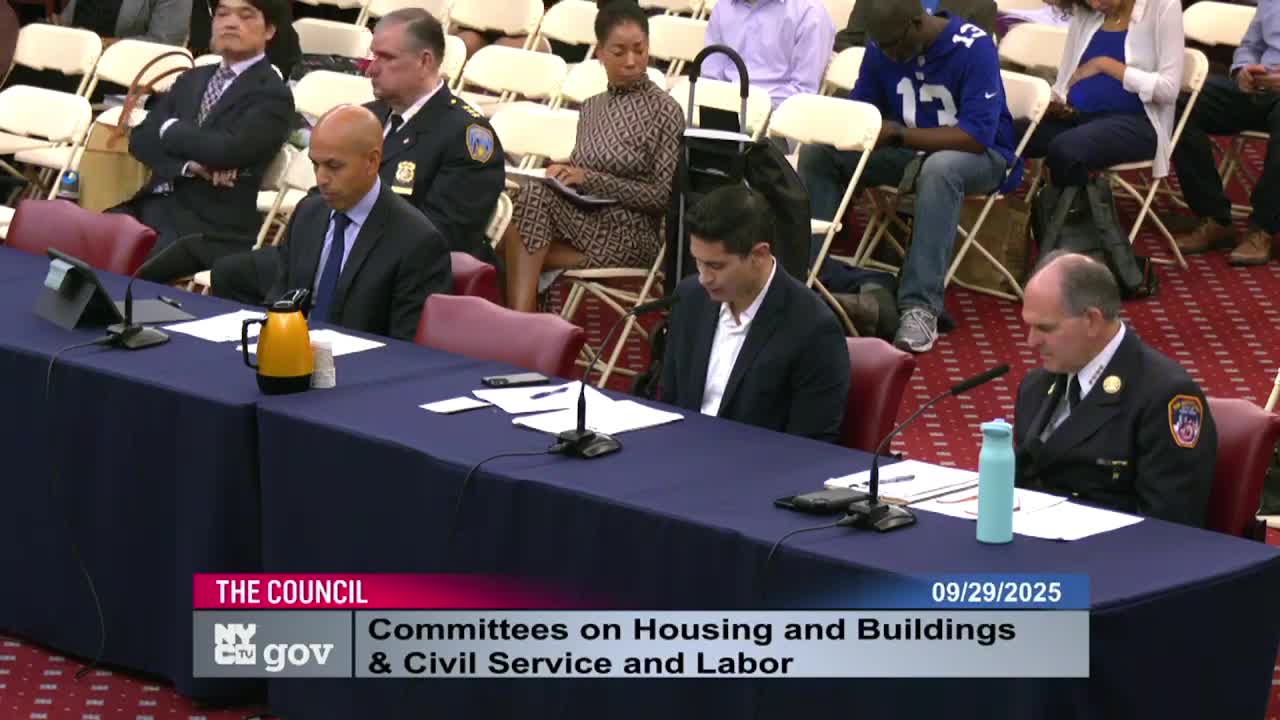
Council hearing draws broad support for Daily News union, resolution condemning Alden Global Capital
